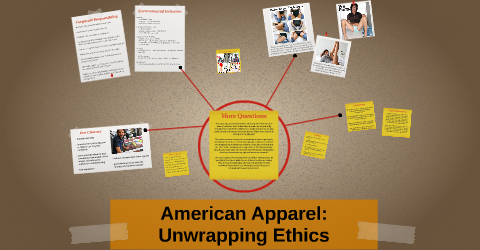Case Study Analysis – Too Much Information

Case Study Analysis – Too Much Information
Table of Contents
IV. Identification and Evaluation of Alternatives
V. Recommended Course of Action
Executive Summary
In the given case, Erika, Jeff, Julianne, and Akram are second-year business students who were provided with a business case analysis assignment in their Business Ethics course. The assignment instructs that the students should act as ethical consultants for an organization who took a reputational hit having accused by conducting unethical business practices against its customers.
The group faces an ethical dilemma when working for the assignment. One of the requirements is to utilise the elements written in the case only, and not to seek out for further information about the case or the company on the internet. However, Jeff ignores this instruction and conducts research online. When the group meets exactly one week before the assignment is due, they find themselves in an uncomfortable situation in which they need to decide whether to utilise the information Jeff brought to the table or not.
This report aims to analyse the case by identifying the problems, opportunities and challenges faced by the case group. This paper also includes our SWOT analysis for the group, and Fishbone analyses for each problem identified in the case situation. Further, alternative options that the group can follow have been introduced, and all alternatives have been evaluated by identifying the pros and cons of each. Then we have provided a recommended course of action and implementation plan for the case group to follow for the sake of successful completion of the assignment.
The first challenge of the group was to realise that they have a lack of knowledge and experience regarding the organization type and the industry introduced in the case. This made them collectively decide that one of the group members, Jeff, would do some research using internet sources about the healthcare industry and group purchasing organizations (GPO). Instead of researching the industry and the GPOs, Jeff invested his time in finding the answer for the assignment, and he came up with the exact copy specifying what the concerned organisation did in the real world. This led the entire group to an ethical dilemma on whether to use the information he brought, or to follow the detailed two-page specifications of the assignment Professor instructed that restricts to use any resources to seek out for further information about the organization.
It was critical to communicate the prohibition clause before they have commenced the work. It shows the lack of proper communication as the other group members already knew the respective clause. This causes an ironical situation in which the students doing the assignment for ‘’Business Ethics’’ course who are supposed to act as ‘’ethical consultants’’ violate the ‘’ethical principles’’ to accomplish the assignment.
We recommend that the group ignores the information found by Jeff online and proceeds with the existing case elements as the directions required. Before continuing with any work, they all review and confirm to comply with the specifications. We also recommend that the group assigns a team leader, makes a proper work allocation, prepares a detailed action plan, and decides to meet every day to make sure that they are on track to fulfil the requirements within the limited span of time they are given by Professor Nash. Also, the presentation time is allocated fairly between the group members to meet the balanced participation requirement imposed by the Board.
We highlight that the group members should keep in mind that this is an ethics assignment for Business Ethics class. Professor Nash is a strong supporter of group case analysis assignments and he expects a lot from his students. If the group wants to end up with a fair grade from this assignment, the specifications should be followed, expectations should be met, and ethical borderlines shouldn’t be violated.
I. Introduction
Erika, Jeff, Julianne, and Akram are second-year business students in a university who were given an assignment by Professor Nash, their Business Ethics course’s professor.
- Jeff has self-confidence and participates class discussions frequently.
- Julianne has a social and extrovert personality, she will start working in an insurance company but she needs to graduate this semester, otherwise she’ll lose her job offer.
- Akram is smart and considerate, he is a valued team member for group projects. He wants to graduate at the end of this academic year.
- Erica is happy to team up with Jeff, Julianne and Akram. All have high grades and they would like to keep in that way. She hopes one day she will have an opportunity to be a co-author of Professor Nash writing a business case together.
- The assignment that the group is given worth a high percentage of the total course grade, and it’s not short or easy.
- They are expected to act as ethical consultants to a GPO in the healthcare industry. The GPO just passed public scrutiny and a reputable newspaper claimed that the organization is not working for the sole benefit of the patients as its practices keep the patients from the best care.
- The first part of the assignment was to draft a response letter to the editor of the newspaper, and it was due on the same day with the assignment assigned. The group managed to submit the draft letter to the Professor in due time.
- The second part of the assignment is to prepare a well-rounded plan that will display the organization as an ethical industry leader, and present the plan before the board consisting of Professor Nash, his university colleagues, and business contacts. The board expects the group members to arrange well-adjusted participation for the presentation.
- After the presentation, the board will decide an overall grade for the group, and the group will have sole discretion in allocating such grade among the members.
- The group meets one week before the due date to listen to Jeff’s research outcomes, and determine the next steps.
- Jeff says that he searched the company on the internet, and found information about what the company actually did in terms of the second part of the assignment.
- All other three group members shocked by this approach as the assignment instructions clearly include that the students are not allowed to research the company on the internet as they need to analyze the case with the existing elements of the case only.
- While Jeff seems disappointed by his team members’ reaction, everyone thinks about whether to use the information that Jeff found for their comprehensive plan and presentation.
II. Problem Statements
The following issues need to be addressed:
Problem 1: The group should decide whether to utilize the information Jeff found on the internet when preparing the second part of the assignment.
One of the requirements of the assignment was not to look for further information about the organization on the internet. Jeff is willing to use his research outcomes whereas Julianne and Akram, from a first impression, seem on the same page with Erica about excluding any information not disclosed in the business case.
Problem 2: The group has time constraints as the assignment is due in one week so that they need to make a decision somewhat quickly and allocate the works wisely among the members.
This assignment forms a substantial part of their overall grade, and it’s long and challenging. They have only a week in which they need to manage their time properly and get all the work done by the presentation day.
Problem 3: Julianne and Akram need to pass this course as they need to graduate at the end of this term.
This assignment plays a crucial role for Julianne and Akram as the overall grade they will get could determine whether or not they pass this course. They want to graduate this term so that they have to pass it. It is more important for Julianne as she will lose her job offer from an insurance company if she cannot finish her degree as scheduled.
Problem 4: The group should allocate the presentation time between the group members somewhat equally as the board has an expectation of seeing the balanced participation from the group members in the presentation.
The overall grade to be assigned to the group will be shared among the group members by themselves. In other words, the group will need to decide how to allocate the overall grade. If the participation in the presentation is not arranged in a balanced way by the group, the end allocation can be painful.
Problem 5: This is an assignment for ‘’Business Ethics’’ class, and Professor Nash is a ‘’Business Ethics’’ professor. The group should act wisely when making decisions and taking actions related to ‘’ethical issues’’ during the project.
Business ethics deals with the rightness, fairness or justice of actions, behaviours and decisions that take place in an organizational setting (Carrol & Brown & Buchholtz, 2018). The group acts as ethical consultants in the case, and as a Business Ethics lecturer, Professor Nash, would expect his students to take the right, fair and just actions when completing the case. The group may need to remember the main purpose of the course, and understand that no instruction or requirement is given for no purpose in the business cases.
Problem 6: None of the group members has substantial knowledge or experience regarding the healthcare industry, and they didn’t even hear the term ‘’group purchasing organization’’ before this assignment.
The group is unfamiliar with the organization type, and they have a lack of industry knowledge. They would need to research the terms that they didn’t hear before, and also the healthcare industry to have an idea before starting to the assignment. Given the time constraints, this can be challenging for them as they need only one week to complete entire assignment and also prepare for the presentation.
III. Problem Analysis
SWOT Analysis for the group
| Strengths | Weaknesses | Opportunities | Threats |
| Every individual in the group has different competencies that they bring in to the group work. Jeff is self-confident and always engaged in class discussions. Akram is organised and well-prepared who has valuable observations. Julianne is a compatible person who has a friendly personality. Erica is very interested in this class and enjoys being part of this group. | They didn’t go over the assignment instructions when they met on Tuesday to make sure that Jeff will comply with them when conducting his research. | This is an exposure opportunity for the group as they will learn something new in a different industry, working on a new type of organization. | They have no real-life experience which restricts their capability of putting themselves in the shoes of ethical consultants. |
| All group members take the class and assignments seriously, they have good grades and they want to keep it that way. | None of them has any experience or knowledge about the healthcare industry. They don’t even know the organization type “group purchasing organization”. | Working on a business case allows them to work on a real company scenario. It is far better than just studying from the textbook as it gives a better hands-on experience simulation. It is also more engaging. | They have limited access to information as it is prohibited under the instructions to research further. |
| They are all responsible people as they showed in creating time for the first part of the assignment to submit in one day. | They wasted 3 days (from Tuesday to Friday) just for internet research. | They can use this project as an opportunity to improve their negotiation, conflict resolution, and communication skills. | Deadline is very tight as they need to rearrange their schedule for meetings. |
| They get along and work well together, they realised this when they came together to submit the letter draft to Professor Nash. | They gave the research task to Jeff only instead of allocating the work between more members. This made them fully dependent on what Jeff comes up with. | If they, especially Erica, showcase themselves to Professor Nash well, they can get an opportunity to work on writing a business case with him in the future. | The board will assign the overall grade to the group which would be further divided by themselves. This may lead to competitiveness to do better at an individual level than as a group. |
IV. Identification and Evaluation of Alternatives
Identification of Alternatives:
- The group ignores the information found by Jeff on the internet as they think it would be unethical, and proceeds solely with what the case includes.
- The group allocates the workload effectively among the group members to ensure that the work allocation is fair, and it will allow them to complete the work in due time.
- The group ensures well-adjusted allocation of the presentation time among the group members to comply with the Board’s expectation of balanced participation of the members during the presentation.
- The group keeps in mind that they are in “Business Ethics” class, working on the “Business Ethics” project; thus, the expectation of being ethical must be much higher than other classes.
- The group effectively put themselves into ethical consultants’ shoes and try to simulate the real-life situation.
- The group assigns a group leader to manage the workload, ensure they are on track, solve the conflicts between different group members (if required), and the most importantly, make the final decision if the group ends up in a deadlock situation.
- The group makes sure that they go over the assignment instructions and requirements together, before initiating any work.
Evaluation of alternatives:
Alternative 1: The group ignores the information found by Jeff on the internet as they think it would be unethical to them, and proceeds solely with what the case includes.
Pros:
- They will comply with the project specifications.
- They will comply with the role of being ethical consultants.
- This behaviour will be acknowledged and possibly appreciated by Professor Nash and the Board.
- They won’t bother researching on the internet, and have more time to focus on the existing details to complete the assignment well.
Cons:
- Not utilising the internet sources will force them to come up with their own ideas which may not be easy for everyone, and which takes precious time. Given that the group has a limited time, using the online information may be tempting.
Alternative 2: The group divides the workload effectively among the group members to ensure that the work allocation is fair, and it will allow them to complete the work in due time.
Pros:
- Fair work allocation would make them feel comfortable about working with other members, and engaged in doing the group work.
- Working under pressure and with tight deadlines will force them to improve their time management skills.
Cons:
- They need to trust one another about doing their part well and in compliance with the specifications as they don’t need time to check each others’ works and redo if they think it’s not good enough to submit.
- Fair work allocation may still result in conflicts if any of the members think that they worked more or spent more time on the project than others.
Alternative 3: The group ensures well-adjusted allocation of the presentation time among the group members to comply with the Board’s expectation of balanced participation of the members during the presentation.
Pros:
- Balanced work allocation will help them in dividing the overall grade at the end of the project as they will be able to think of equally allocating the grade among the members.
Cons:
- Some members may be good at presentation whereas some are not. They would have allowed more time to ones who are good at public speaking and presenting to get higher marks, but with balanced participation requirement it won’t be possible.
- Julianne and Akram are graduating soon, thus they may need higher grades. The current rule of grading depends on each other may create conflicts between the group members at the end and deciding on end allocation can be painful.
Alternative 4: The group keeps in mind that they are in “Business Ethics” class, working on the “Business Ethics” project; thus, the expectation of being ethical must be much higher than other classes.
Pros:
- They learn ethics by practising it in challenging situations.
- This will help the group members to be recognised and appreciated by the Board and Professor Nash.
Cons:
- As being ethical is not easy in the real world either, it is not easy in their case too. Not utilising the internet sources will force them to come up with their own ideas which may not be easy for everyone, and which takes precious time. Given that the group has a limited time, using the online information may be tempting.
Alternative 5: The group effectively put themselves into ethical consultants’ shoes and try to simulate the real-life situation.
Pros:
- This will allow them to simulate and understand real-life experience which will be helpful for their future career.
- Understanding ethics and practising how to deal with ethical issues in the class before facing them in the real world is an advantage for them as the consequences of being unethical in the real world would be worse than getting a low grade in a class assignment.
Cons:
- Lack of real-life experience makes it hard for them to relate to the professional world.
Alternative 6: The group assigns a group leader to manage the workload, ensure they are on track, solve the conflicts, and most importantly, make the final decision if the group ends up in a deadlock situation.
Pros:
- Decision making will be much easier as the leader will make the end decision in terms of the conflict or deadlock.
- Having a capable group leader will allow the group to manage the time, meetings, workload and members more effectively.
Cons:
- Assigning a group leader is always a tough decision especially in this case where all group members are capable. They also have different interests in the project.
- The group members didn’t team up before for a group assignment, so they don’t know who can lead the group.
- They need to think of the end allocation of the overall grade, whether the group leader will be allocated higher mark.
- If the group leader fails to manage the group, workload, and meetings effectively, then the group may end up in a painful situation which contains more risk for Julianne and Akram as they would like to pass this course and graduate soon.
Alternative 7: The group makes sure that they go over the assignment instructions and requirements together, before commencing any work.
Pros:
- They will make sure that they understand the terms, and to-dos. They will also ensure that they are on the same page about the directions.
- This will help them to be more efficient and productive in their work, as each group member submit a work that is acceptable for the other members, unlike the current case of Jeff.
- They won’t waste time as in the current case of Jeff’s situation nor they will have to duplicate or re-do the work.
Cons:
- If they wait for this meeting to initiate their work, and in case the meeting delays due to lack of time arrangement among the members, then the work initiation will delay too.
V. Recommended Course of Action
The following courses of action should be implemented to address the problems:
- The group should spend some time, before initiating or continuing with any work, to review the instructions and requirements of the assignment together, and make sure that they understand all. They should also confirm that, going forward, they will adhere to the instructions.
- If Jeff still has doubts about whether to include the internet research information in the assignment, Julianne, Erica and Akram should speak up. They may offer to vote on this to be fair and democratic. Before moving on, all members should be clear and on the same page about adhering to the project instructions, and acting ethical during the process.
- The group should assign a group leader. After spending 3 days on Jeff”s research, they have a limited time left to do everything. To coordinate all the team members, allocate responsibilities, manage the time and workload effectively, there should be a leader who is capable enough to lead the group.
- The group should make a to-do list and action plan including the works to be completed for the successful completion of the assignment.
- The group then should allocate the work. While dividing the work, the group and the leader is responsible to find out who is capable or competent to do what. One may be good research, whereas others are good at writing. Work should be allocated in such a way that the person allocated should be the best to accomplish the given task.
- The group should make a timeline to set up some deadlines for each phase of work to be completed for the second part of the assignment. This helps to avoid unnecessary delays and/or ineffective time management.
- As the case is associated with a GPO in healthcare industry which any of the group members is not familiar with neither the organization type nor the industry, they need to make a due research first to develop a base idea and foundation to work on the case.
- Given the time constraints, the group should consider meeting more often, if possible every evening to go over the work completed by each group member.
- As the group is supposed to act as real-life ethical consultants, they should make sure they have done enough research on how ethical consultants work on a case, their duties and responsibilities in professional life.
- All the group members should contribute with their best and try to meet the expectations of their peers as the allocation of the grades will be in the sole discretion of group members.
- Throughout this project, the group should keep in mind that this is an ethics assignment for a Business Ethics class. Professor Nash would want students to be responsible and conduct ethical behaviours. It wouldn’t make sense if the group violate ethical values for an ethics assignment.
- The group should allocate the presentation time among the group members equally to make sure that the balanced participation requirement is met.
VI. Implementation Plan
Immediate Actions:
- The group reviews the instructions together and confirm that they understand and will comply with all.
- The group votes on whether to include Jeff’s research outcomes. With the result of the voting, the group decides not to use the information found by Jeff on the internet.
- The group assigns a team leader to be responsible for the overall management of the project, and to ease the decision-making process.
- The group makes a to-do list and action plan which also includes deadlines for each phase of work to be completed.
- The group and the leader allocate the work based on the competencies and capabilities of the group members.
- The group meets every day until the presentation day to go over the progress made by each group member, confirm the work, and make sure that they are on track.
- The group adjusts the presentation time well among the team members to make sure that a balanced participation requirement is fulfilled.
- The group makes sure that the work allocation and presenting time assignment are fair among the members so that the overall grade assigned to the group by the Board can be divided into the members equally.
Short-term Actions:
- If any of the group members have trouble to adhere to the instructions, or comply with ethical values, or gives hard time to the group in any manner, then others can consider not teaming up with him/her in the next group projects.
Long-term Actions:
There are no long-term actions to consider in this case as the group members will be graduated until then.
VII. Conclusion
In summary, the group had to make an important decision to whether to do the assignment in an easy but unethical way, or ignores the temptation and maintain the ethical values by ignoring the information available on the internet. They are left with a limited time which also makes the idea of using Jeff”s research outcomes more tempting as all of them feel the time pressure imposed by Professor Nash’s tight deadline. However, they should keep in mind that Professor Nash knows the fact that further information is publicly available on the internet, and tests his students on purpose challenging them with an ethical dilemma to see if they will stay within ethical borderlines.
If the group follows the instructions carefully, manages their time effectively and can showcase themselves in the presentation to Professor Nash and the Board, not only they can get high grades, but also they can have an opportunity to work with Professor Nash on a case-writing project in the future. Julianne and Akram enjoy passing the course which is essential for them to graduate as scheduled, Erica makes herself visible to Professor Nash, and Jeff learns an ethics lesson from this case which would be helpful for his future career. Through this project, they will have a hands-on, simulated real-life experience to practice the business challenges and ethical issues faced by professionals and actual companies.
References
Carroll, A. B., Brown, J. A., Buchholtz, A. K. (2018). Business & Society: Ethics, Sustainability & Stakeholder Management. Boston, US: Cengage Learning.
Hawkins, A. (2014). Too Much Information. Ivey Publishing.





